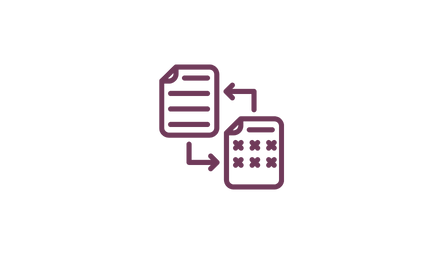Explore various methods of randomization to help prevent cheating in online exams
Online exams enable the utilization of techniques that were not feasible in traditional paper-based assessments. One such technique is Question Randomization. In offline exams, it was common to create multiple versions of the exam, varying either the order of questions or the set of questions themselves. Question randomization is a modern method that replaces this paper-based practice, with a similar objective: to minimize or prevent cheating attempts.
Outline
- Types of Question Randomization in Online Exams
- Online Exams with Randomized Questions
- Online Exams with Randomized Question Selection
- How it Works
- Why They Are Used
- Advantages
- Disadvantages
- Different Techniques of Randomized Question Selection in Online Exams
Types of Question Randomization in Online Exams
In the world of Online Exams, there are two approaches to randomizing exam questions: randomizing the order of questions or randomly selecting questions from predefined question pools. Both approaches are frequently employed, but their implementations, mechanisms, and outcomes can vary significantly.
Online Exams with Randomized Questions
"Exams with Randomized Questions" refers to assessments in which the questions presented to each test-taker are randomly ordered or rearranged for each individual. In this practice, the actual content of the questions remains the same for all test-takers; however, the sequence or order in which these questions appear on the exam varies from one test-taker to another.
These types of assessments can also be referred to as:
- Tests with Shuffled Questions
- Assessments with Question Variability
- Exams with Rearranged Questions
- Question Order Randomization in Tests
- Randomly Ordered Quizzes
- Shuffled Question Assessments
- Varied Question Sequences in Exams
- Question Sequence Randomization
- Test Question Rearrangement
- Randomized Order Tests
The primary objective of this approach is to prevent cheating and enhance the fairness of assessments. When questions are randomized, it becomes challenging for test-takers to anticipate the order of questions or share answers with others who might be taking the same exam. As a result, it promotes academic integrity by reducing the likelihood of dishonest practices.
Online Exams with Randomized Question Selection
"Online Exams with Randomized Question Selection" is an assessment approach where the questions presented to each test-taker are not only randomly ordered but also randomly selected from a predefined pool or question bank. In this method, each test-taker receives a unique set of questions, drawn from a larger collection, ensuring that no two individuals take the same exam.
These exams are also referred to as:
- Randomized Question Bank Assessments
- Variable Question Order Exams
- Unique Question Selection Tests
- Individualized Question Sequence Assessments
- Exam Variability with Random Questions
- Question Randomization in Online Testing
- Assessments with Randomly Selected Questions
- Diverse Question Selection Tests
- Variable Exam Content Assessments
- Random Question Generation Exams
How it Works
- Question Pool Creation: Questions are curated and organized into a question pool or bank, covering various topics, difficulty levels, and question types.
- Random Selection: When a test-taker begins the exam, the system randomly selects a set of questions from the question pool. These selected questions compose the unique exam for that particular test-taker.
- Random Ordering: In addition to random selection, the order of questions within the exam is randomized for each individual, further enhancing exam variability.
Why They Are Used
- Enhanced Fairness: Online exams with randomized question selection offer a high degree of fairness by ensuring that each test-taker faces a different set of questions, reducing the risk of cheating or sharing answers.
- Comprehensive Assessment: They allow for a more comprehensive evaluation of a student's knowledge as questions can cover a broader range of topics.
Advantages Over Exams with Identical Questions in Identical Order
- Increased Security: Greater security is achieved as each test-taker receives unique questions, making it extremely difficult for students to share answers or obtain pre-knowledge of the questions.
- Fairness: They promote fairness by eliminating the possibility of some students receiving easier or more challenging questions than others.
- Comprehensive Evaluation: A broader pool of questions enables a more comprehensive assessment of a student's understanding.
Disadvantages Over Exams with Identical Questions in Identical Order
- Complex Setup: Implementing and maintaining the question pool and randomization processes can be more complex and resource-intensive.
- Technical Requirements: Conducting online exams with randomized question selection requires suitable technology and internet access for both instructors and students.
Different Techniques of Randomized Question Selection in Online Exams
In the realm of randomized question selection in online exams, two distinct techniques are commonly employed to ensure fairness, security, and diversity in assessments.
- The first technique is known as systematic randomization, where questions are selected and presented in a structured, orderly manner. This method follows a predetermined pattern or sequence for presenting questions, offering a sense of organization while still introducing variability.
- Conversely, the second technique, termed random sampling, introduces an entirely stochastic approach. In this method, questions are chosen without adhering to any specific order or pattern, resulting in a more arbitrary and unpredictable selection process.
While systematic randomization maintains a certain level of control, random sampling introduces a higher degree of randomness and variability into the selection of questions. The choice between these two techniques depends on the desired balance between structure and unpredictability in online assessments, with each approach offering its own advantages and considerations.
